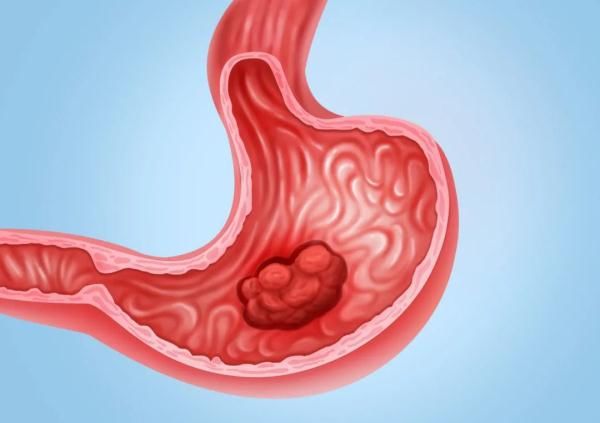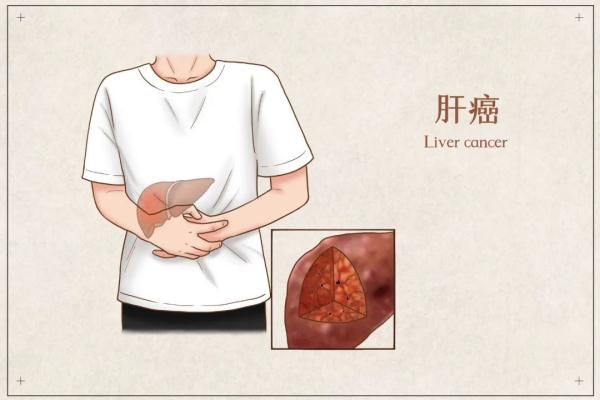Cancer has complex causes, and it often becomes a heavy burden. Preventing cancer is imperative!
There are also many friends who want to know
Can cancer be inherited?
Today I will make it clear~
Cancer does have hereditary possibility
The occurrence of familial cancer is related to many factors. In addition to the influence of shared bad habits, there is also a condition caused by mutations in cancer-causing genes passed down through generations, which is often referred to as “hereditary cancer”.

For such people, due to inherited familial gene defects, the chance of developing certain cancers greatly increase.
The American Cancer Society believes that about 5-10% of cancer cases are related to hereditary gene errors.
Although this proportion is not large, it deserves our vigilance.
Which cancers are genetically linked?
The Journal of the American Medical Association (JAMA), a top clinical medical journal in 2016, published a study by Harvard scientists in collaboration with researchers in Denmark and Finland.
Research has found that at least 22 types of cancer are genetic diseases that are passed from generation to generation in families.
However, different cancers have different genetic risks.
thyroid cancer
more than 3 cases with a genetic probability of over 90%
clinically found that if first-degree relatives in the family (such as parents, children and siblings) If there are 3 or more patients in the family), the probability of heritability in the family will exceed 94%.
Therefore, if there are 2 to 3 relatives who have suffered from thyroid cancer in the family, it is recommended to carry out prevention and genetic screening as soon as possible.
Colorectal cancer
20%~30% of colorectal cancer patients
Have a family history
Many colorectal cancer patients are diagnosed with intestinal cancer. polyps, and “familial adenomatous polyps” are autosomal dominant.
Therefore, if there is an immediate family member suffering from familial intestinal polyposis, it is best for the family to go to the hospital for relevant examinations.
Gastric cancer
It is closely related to heredity
Part of gastric cancer is related to heredity, among which the most common is hereditary diffuse type gastric cancer, because it is autosomal dominant genetic disease.
However, this does not mean that gastric cancer is a genetic disease. A large number of clinical data have proved that the offspring of patients with gastric cancer in their families do not necessarily suffer from gastric cancer.

Bad diet and everyone’s exposure to certain carcinogens in the environment are more of a concern than genetic factors.
Liver cancer
The obvious feature is family history
Liver cancer is also hereditary, which has been recognized by the medical community. The characteristic is the family history, that is, in the same family for several generations, there are multiple liver cancer patients, and their family has a higher risk of liver cancer than ordinary families.

If the family has liver cancer patients, their children should have a comprehensive liver examination regardless of their health, such as full liver function Items, B-ultrasound, etc.
Breast cancer
The risk of daughters is 2 to 3 times higher
Breast cancer has obvious genetic tendency, especially the possibility of inheritance among immediate family members.
Generally speaking, the risk of breast cancer in mothers and daughters is 2 to 3 times higher than that of other women.
Lung cancer
Lung cancer + smoking in family members
14 times higher risk
Lung cancer epidemiological report shows that the incidence of lung cancer in a person’s close relatives A person with lung cancer who smokes has a 14 times higher risk of developing lung cancer than the general population.
Therefore, the best way to prevent lung cancer in high-risk groups is to quit smoking and stay away from secondhand smoke.

nasopharyngeal carcinoma
obvious familial predisposition
nasal Pharyngeal cancer has obvious racial susceptibility, regional clustering and familial tendency.
People with a family history of nasopharyngeal cancer are recommended to regularly check for EB virus. Diet should pay attention to avoid eating pickled foods, because eating pickled foods can increase the incidence of nasopharyngeal cancer by 2 to 7 times.
Changes in unhealthy lifestyles
Can prevent the occurrence of cancer
The World Health Organization proposes: one-third of cancers are completely preventable; one-third of cancers are completely preventable; Cancer can be cured through early detection; one-third of cancers can prolong life, reduce suffering and improve quality of life with available medical treatments.
Changes in unhealthy lifestyles can prevent cancer.
(1) The World Health Organization considers cancer to be a lifestyle disease.
(2) Smoking, obesity, lack of exercise, unreasonable dietary habits, alcoholism, stress and psychological stress are all risk factors for cancer.
(3) Quitting smoking and limiting alcohol, balanced diet, moderate exercise, and good mood can effectively reduce the incidence of cancer.
(4) The occurrence of cancer is a process of accumulation of related risk factors throughout the human life cycle. Cancer prevention and control is not just a matter for middle-aged and elderly people. It is necessary to pay attention to cancer prevention as soon as possible, develop a healthy lifestyle from an early age, avoid exposure to cancer-causing factors such as tobacco and alcohol, and reduce the risk of cancer.
Comprehensive: health care in China, chronic disease community, core information on cancer prevention and treatment
Source: National Healthy Lifestyle Action